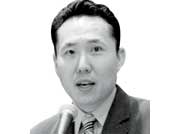Korean American or American Korean?
Above is the title of a lecture that I have to give to a group of University of Maryland students this Friday for a College Leadership Academy session sponsored by the D.C. chapter of the Peace Foundation.
And I am stumped. I can’t believe that I ever agreed to speak on this topic since I have no idea what a Korean American is, although I am supposedly one. And if I can’t define what I am, what chances do I have of lecturing about it and then comparing and contrasting it with its reverse derivative? I mean the title makes for nice copy but to build meaningful substance around it? I feel like that I have been too clever by at least half.
So, I started with the dictionary definition of Korean American. By the way, “American Korean” isn’t a real word, so no dictionary definition exists. Webster defines Korean American as “a person of Korean ancestry who was either born in or is an immigrant to the United States.”
This sounds straightforward enough, but let’s take a look at the Korean ancestry qualification.
What does that mean? Is it genetic ancestry? Is there a special genetic marker that defines someone as Korean or not? In that case, what about Koreans who have only one parent who’s Korean? I mean, they say that 8 percent of marriages in Korea are between a Korean man and non-Korean woman. What about their kids?
Also, what about the children of interracial marriages here in America between a Korean and a non-Korean? Where I live, it’s fairly common to see a Korean woman with a white American husband. Do they qualify to be of Korean ancestry? Are they more or less Korean than an adoptee who might be of 100 percent “Korean blood” but was raised in a community that had nothing to do with Korea?
Or does Korean ancestry refer to geography, as in where you or your ancestors came from? But what if your ancestors lived in Manchuria or Siberia before making their way to the U.S.? I mean, Koreans were everywhere in the early part of the 20th century. Heck, there was even a period of 30 odd years when Korea didn’t even exist as an independent country. Are you still a Korean?
How about culture? Types of food you like? Genres of music that you listen to? Is enjoying “Arirang” the ultimate litmus test for being of Korean ancestry? Or is it liking Kimchi? Perhaps you know you are Korean when you see a roll of toilet paper on the tables of a neighborhood Korean restaurant and not bat an eye.
OK, I am getting a headache from all these questions. So let’s look at “American Korean” for a bit.
Of course, by playing with the term in this fashion, I am obviously trying to get at an uncomfortable truth about our “Koreanness” versus “Americanness,” as in which term you are more defined by. More accurately, what portion of your identity is Korean and what portion is American?
More questions. Who do you root for when the Korean national football team, the Red Devils, go up against the American side in the World Cup? Or, when you hear someone yell, “Dokdo!” do you reply with “Our land!”? If you do, who is “our” in your reply? What about your U.S. Oath of Allegiance, especially the part that says, “that I will bear arms on behalf of the United States,” if the enemy is Korea? How firm is your resolve to keep the oath then?
Guess what? Every Korean American that you ask these questions to will have a different answer, depending on his or her personal background. If you are a 4th generation Korean American descended from Hawaiian sugar cane pickers, you will have a different answer than someone like me who came to the U.S. when 12 years old. The critical point, however, is that you won’t be able to pigeonhole either of us to a specific answer just because of our backgrounds.
What I am getting at is that there is no one single, all-encompassing definition of what being a Korean is anymore, let alone Korean American or American Korean. Self-identity is a complex, nuanced, and contextual process that’s always flowing and evolving, depending on the situations you encounter. Self-identity is a process, not an end-product.
At the same time, there is an overarching narrative that gives a rough shape to the Korean American experience that we can all relate to in varying degrees. Our personal stories weave through in parts or in whole within this overarching tapestry that contain thick strands of Koreanness and Americanness that we can all identify with and contribute in our unique yet similar ways.
Ultimately, being a Korean American or American Korean is not about identity. It’s about your story and knowing that your story is touched by strands from the larger Korean American tapestry that’s still being woven. And you are a co-weaver.
The author lives and works in Washington D.C. He’s been writing for The Korea Times since 2006. His email address is Jason@jasonlim.net. <The Korea Times/Jason Lim>



